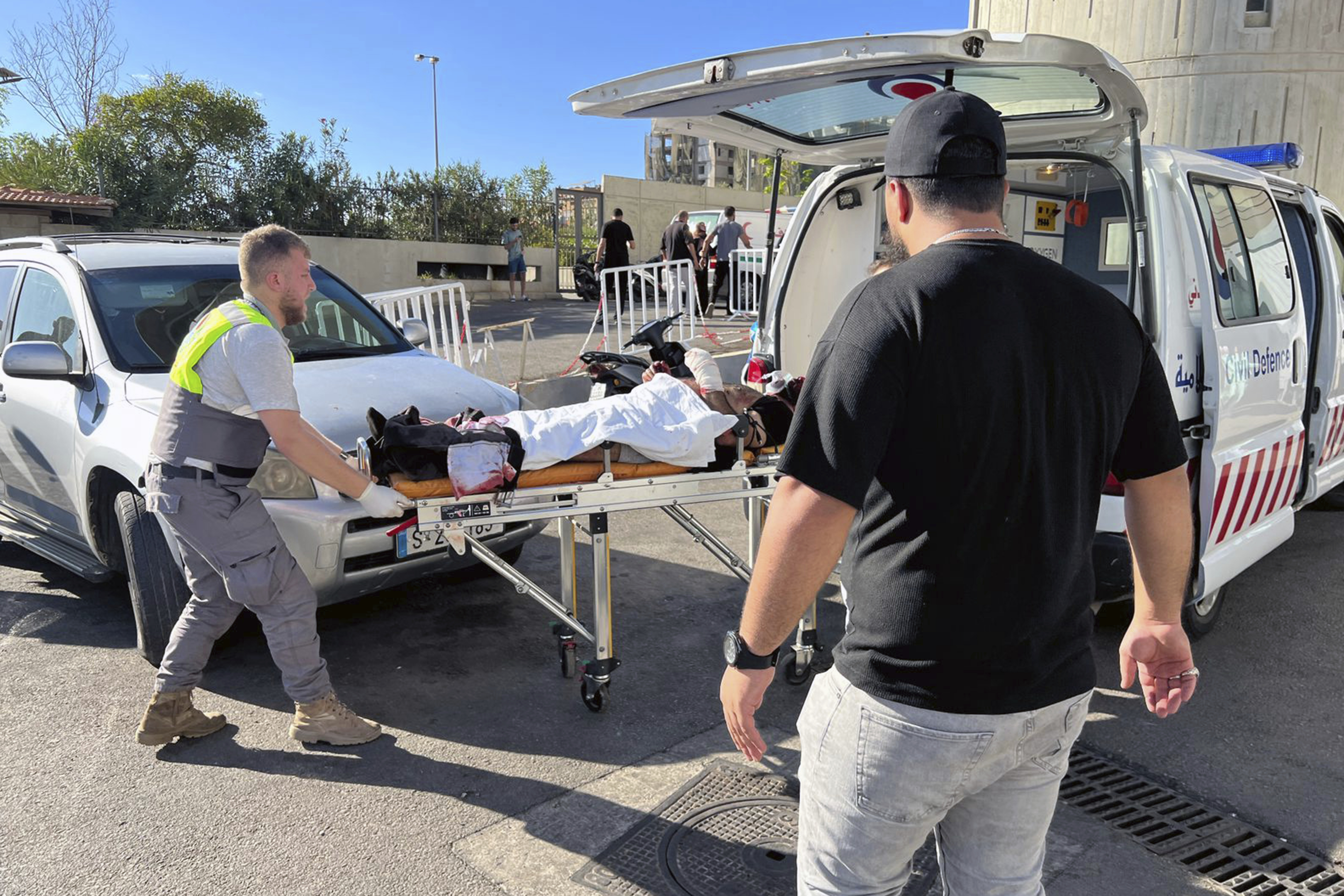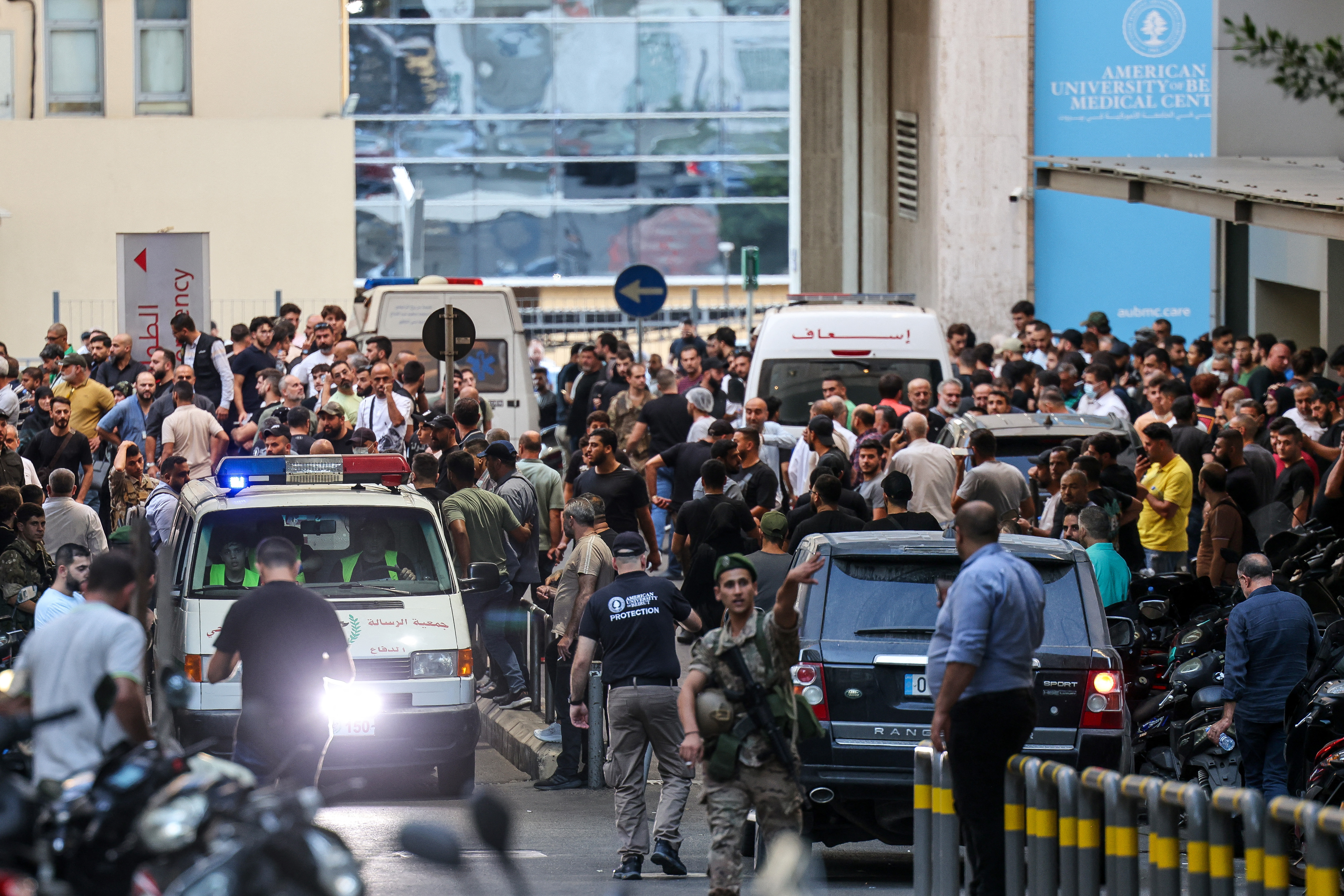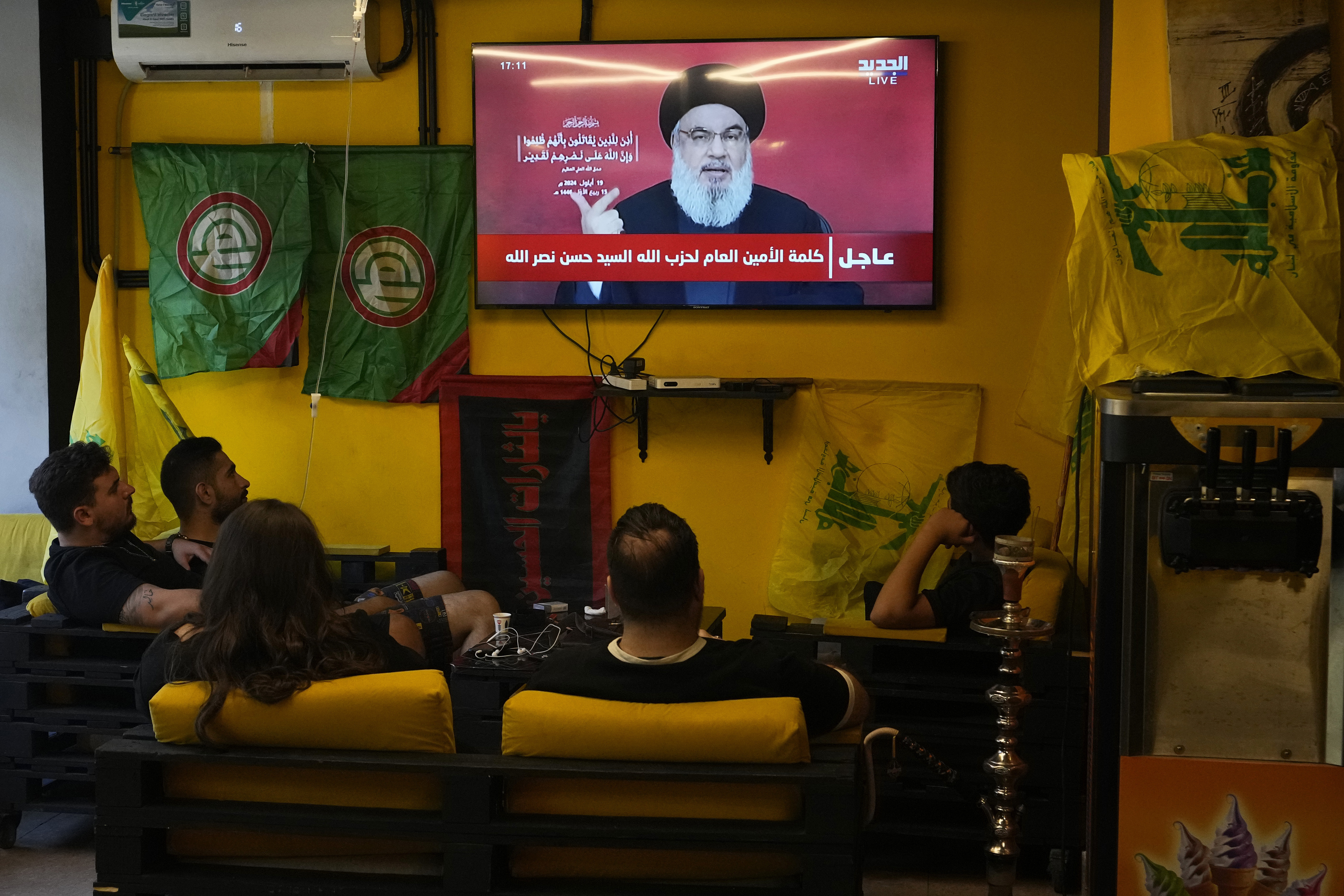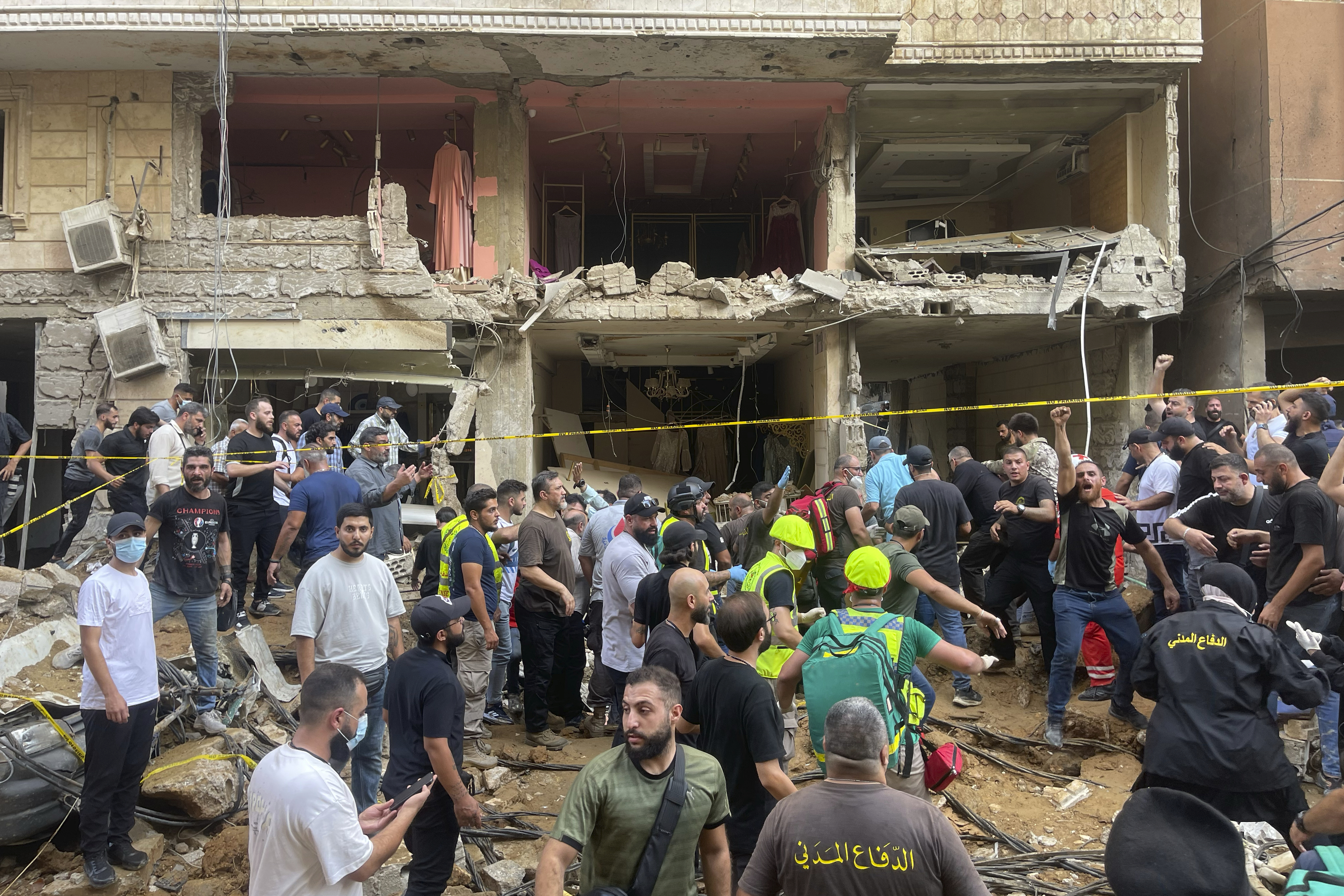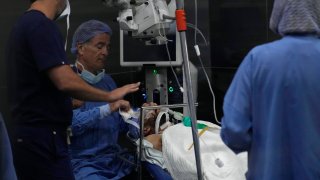
For almost a week, ophthalmologist Elias Jaradeh has worked around the clock, trying to keep up with the flood of patients whose eyes were injured when pagers and walkie-talkies exploded en masse across Lebanon.
He has lost track of how many eye operations he has performed in multiple hospitals, surviving on two hours of sleep before starting on the next operation. He has managed to save some patients’ sight, but many will never see again.
“There is no doubt that what happened was extremely tragic, when you see this overwhelming number of people with eye injures arriving at the same time to the hospital, most of them young men, but also children and young women,” he told The Associated Press at a Beirut hospital this past week, struggling to hold back tears.
Lebanese hospitals and medics were inundated after thousands of hand-held devices belonging to the Hezbollah militant group detonated simultaneously on Tuesday and Wednesday last week, killing at least 39 people. Around 3,000 more were wounded, some with life-altering disabilities. Israel is widely believed to have been behind the attack, although it has neither confirmed nor denied its involvement.
Get top local stories in San Diego delivered to you every morning. >Sign up for NBC San Diego's News Headlines newsletter.
Although the explosions appear to have targeted Hezbollah fighters, many of the victims were civilians. And many of those hurt in the attack suffered injuries to their hands, face and eyes because the devices received messages just before they detonated, so they were looking at the devices as they exploded.
Authorities have not said how many people lost their eyes.
US & World
Veteran and hardened Lebanese eye doctors who have dealt with the aftermath of multiple wars, civil unrest and explosions, said they have never seen anything like it.
Jaradeh, who is also a lawmaker representing south Lebanon as a reformist, said most of the patients sent to his hospital, which specializes in ophthalmology, were young people who had significant damage to one or both eyes. He said he found plastic and metal shrapnel inside some of their eyes.
Four years ago, a powerful blast tore through Beirut’s port, killing more than 200 people and wounding more than 6,000. That explosion, caused by the detonation of hundreds of tons of ammonium nitrates that had been stored unsafely at a port warehouse, blew out windows and doors for miles around and sent cascades of glass shards pouring onto the streets, leading to horrific injuries.
In the News
Jaradeh also treated people hurt in the port explosion, but his experience with those wounded by the exploding pagers and walkie-talkies has been so much more intense because of the sheer volume of people with eye injuries.
“Containing the shock after the Beirut port blast was, I believe, 48 hours while we haven’t reached the period of containing the shock now,” Jaradeh said.
Jaradeh said he found it hard to dissociate his job as a doctor from his emotions in the operating theater.
“No matter what they taught you (in medical school) about distancing yourself, I think in a situation like this, it is very hard when you see the sheer numbers of wounded. This is linked to a war on Lebanon and war on humanity,” Jaradeh said.

